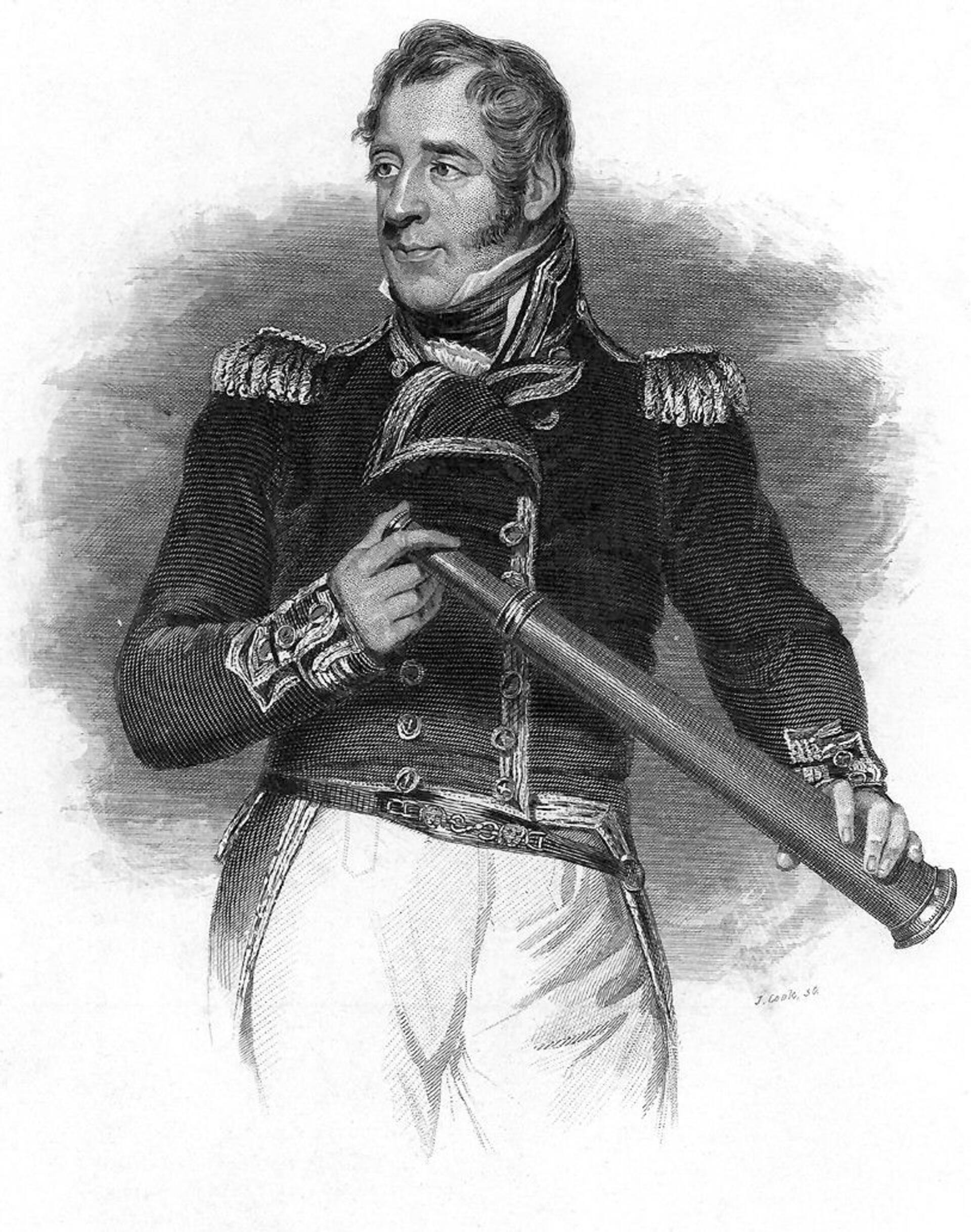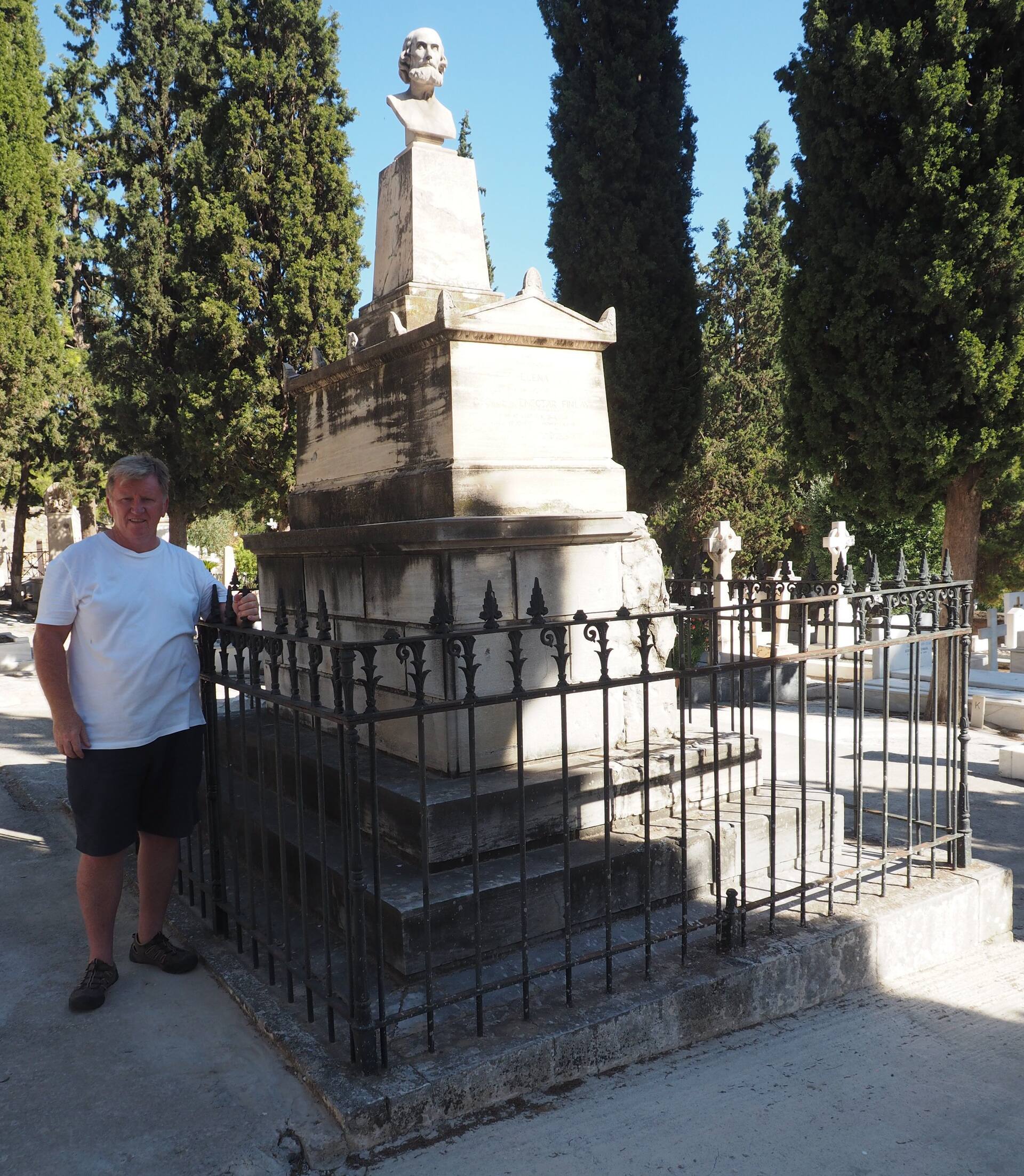As Hellenes around the world on 25 March celebrate the success of the Greek revolution and the foundation of Modern Greece, we should remember the many Philhellenes who joined in the cause just over two centuries years ago.
The Greek Revolution that erupted in March 1821 drew on the admiration of thousands throughout the western world, inspired by the 18th and 19th century resurgence in interest in classical Greece.
This inspiration had drawn artists and intellectuals to the ancient lands of Greece and, combined with the rise of nationalism, would give rise to an international movement to assist the cause of Greek independence.
Many know of Lord Byron – himself the son of a Scots mother from Aberdeen – and the London Greek Committee, but such committees were established throughout Europe, including in Scotland, the land of my own birth, sending much needed funds and as many as 1,000 volunteers who flocked to battle alongside the Greek fighters in their campaign.
Today I write of three Scots who supported the Greek Revolution. All served in the war, two returning to serve the new Greek state as well as to write their popular histories of the war. Last year I visited the grave in Athens’ First Cemetery of one would lived out the rest of his life in Greece.
Thomas Gordon

Thomas Gordon of Cairness in Scotland was one of the first Scottish enthusiasts to come to Greece to join in the war of independence, arriving in September 1821. A former cavalry officer in the Scots Greys, he travelled to Greece (as well as Constantinople and Asia Minor) in 1810. By 1813 he had joined the Russian Army and met the Greek liberation leaders, the brothers Alexander and Dimitris Ypsilantis, becoming attracted to the cause of Greek independence. In 1816 Gordon married a Greek wife.
After the outbreak of the war of independence, Gordon arrived in September and took part in the campaign in the Peloponnese as a staff officer to Dimitris Ypsilantis. He took part in the siege of Tripolitza. After its capture he protested the massacre of the several thousand surrendered Ottomans and left Greece. Returning in 1826, he was given command of the expedition to capture Piraeus and relieve the Ottoman blockade of Athens, later appointed as Director-General of Greek military forces.
While Gordon returned to Scotland in July 1827, by 1828 he had returned to Greece, accompanied by the historian George Finlay, carrying out archaeological excavations at the Heraeum near Argos. In 1833 his History of the Greek Revolution was published in Edinburgh, a book praised for its detail and accuracy. In 1833 he was commissioned as a Colonel in the new Royal Hellenic Army and took part in putting down Ottoman supported rebellions in Messinia, Aetolia and Acarnania. He resigned his commission in February 1839, although he returned to Greece for a short visit in 1840. He died in 1841. He was made Grand Commander of the Order of the Redeemer on his retirement, as well as a member of the Greek Society of Natural History (1837) and Greek Archaeological Society (1840).
Thomas Cochrane

When readers watch Russell Crowe’s depiction of Captain Jack Aubrey in the film Master and Commander, they are looking at a representation of one of the most flamboyant and independent-minded Scottish volunteers. The character Jack Aubrey was based on the life of Admiral Lord Thomas Cochrane, the 10th Earl of Dundonald. Cochrane arrived in Greece following a distinguished career in the Royal Navy, having been a daring and successful captain during the Napoleonic wars, earning Napoleon’s nickname “The Sea Wolf.”
Born at Annsfield in 1775, Cochrane spent much of his early life in the Fife region of Scotland and later attended Edinburgh University. Thomas’ commitment to Greece was based not only on his military experience but on his commitment to the radical politics of the time, supporting the Chartist movement seeking an expansion of the democratic franchise.
He pursued his radical agenda by supporting various independence movements as a naval officer, first throughout South America and then in Greece. He took an active role in the war of independence between March 1827 and December 1828, accepting a commission in the Greek naval forces. It was the actions of one of Thomas’ subordinates – Captain Hastings – in attacking Ottoman naval forces in the waters off Nafpaktos which led indirectly to the naval intervention of Britain, France and Russia which destroyed the Ottoman fleet at the Battle of Navarino. This defeat would lead to the establishment of the first Greek state. He died in 1860 with the honorary rank of Rear-Admiral of the British Royal Navy.
George Finlay

The writer George Finlay was such an enthusiast for Greece that he moved to Athens and would be buried there. Finlay was born in England in 1799 to Scottish parents. He was educated at the Universities of Glasgow and Edinburgh, as well as Gottingen in Germany. Finlay joined Lord Byron during the war of independence, was with him on Cephalonia and at Messolonghi and later served on the warship Karteria under the command of fellow Philhellene, the British naval officer Frank Abney Hastings.
His experience of the popular feeling for independence is reflected in his later writings, recording that “the strength of the Greek cause lay in the hearts of the people.” After the war Finlay moved permanently to live in the Plaka area of Athens, where he began his work assisting the new Greek state with various proposals for its improvement at the request of the Greek Prime Minister Ioannis Kolettis. His various legacies remain to this day, his having played a role in founding the Ionian Bank, the University of Athens and the Greek National Library.
It was while in Greece that George wrote his celebrated seven-volume History of Greece as well as his two-volume History of the Greek Revolution. The latter is particularly impressive, comprising over 800 pages, providing a commentary not only of his own experience of the war of independence, but accounts of the earlier Greek risings in Moldova and Wallachia followed by the outbreak of the revolution in Greece, the course of the war and the establishment of the Greek state. His history includes biographies of many of the Greek leaders. Published in London and in Greece, Finlay’s account would popularise the story of the war of independence across the English-speaking world.
He died in Athens in 1875 and is buried in the City’s First Cemetery. His large correspondence with other Scottish philhellenes is held at the British School in Athens.
Amongst his many awards was the Greek Knight Gold Cross of the Greek Order of the Redeemer – an award also granted many years later to the Australian soldier and refugee worker, Major George Devine Treloar.

The participation of Scots in the Greek story would continue. It was a few years ago that I stumbled across a curious and distinctive memorial in the Suda Bay War Cemetery on Crete. Erected by their comrades, the memorial is dedicated to a group of Seaforth Highlanders who were killed in 1897 while serving as part of the international force, sent to Crete following the rising the previous year. It was the murder of these Scots which led to the removal of Ottoman forces from the island and the independence of Crete.
And of course, the Island of Lemnos, with its key role in the Gallipoli campaign, enjoyed the lilt of the bagpipes as a young Scottish migrant to Australia – Staff Sergeant Archibald Monk from the island of Benbecula, off the west coast of Scotland – played his bagpipes to the arrival of the Australian nurses. As a Scottish-born soldier serving in Greece, Archibald was continuing in the tradition of his 19th century philhellene ancestors.
No article about Scots and Greece would be complete without mentioning the infamous Lord Elgin, the despoiler of the Parthenon. He was certainly Scottish by birth and title. His love of Greece would appear to have been limited to removing the friezes – he played no role in supporting the 1821 revolution. Let Lord Byron have the last word in his poem The Curse of Minerva were he calls on the reader to “recount the relics torn” and names Elgin “the Pictish peer … a spoiler … plunderer … filthy jackal.” Enough said.
And so as we celebrate the liberation of Greece with the clinking of glasses filled with tsipouro, I might charge my glass with some good old Scottish single malt whisky and cheer the memory of the Scottish volunteers who joined in the cause 202 years ago. Well may we say – paraphrasing Robert Burns’ patriotic poem in honor of an earlier fight for liberation – Scots Wae Hae with Hellenes Bled!

Born in Scotland, Jim Claven is a trained historian, freelance writer who has researched Hellenic history for many years, including its link to Australia’s Anzac story across both world wars. He is author of Lemnos & Gallipoli Revealed: A Pictorial History of the Anzacs in the Aegean 1915-16. He can be contacted at jimclaven@yahoo.com.au.
